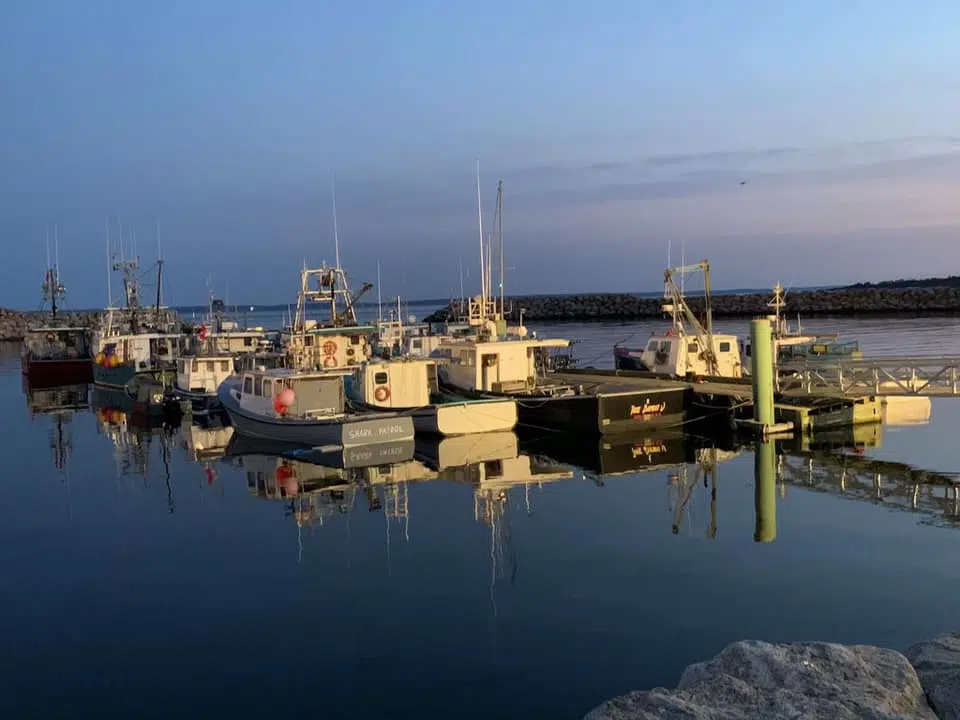
Y95 photo
Sipekne’katik First Nation Chief Mike Sack was arrested by officers with the Department of Fisheries and Oceans Monday, shortly after the Sipekne’katik First Nation launched its treaty lobster fishery in Saulnierville.
With no specific details coming from DFO on what lead to Monday’s arrest, a CBC report confirmed later that Sack was eventually released.
Acadia Broadcasting has reached out to the department for further comment on any charges Sack could face resulting from the arrest.
Earlier Monday, after returning their ‘food, social and ceremonial’ tags, the band decided to issue their own treaty licenses, which are not authorized by the department of fisheries and oceans, and will be regulated by the band.
By 1p.m., 13 treaty licenses had been given out. Chief Mike Sack was at the wharf and discussed why they chose to start the fishery today.
“There’s been a lot of harassment from DFO on our food, social and ceremonial fishing,” says Sack. “People just started to trickle in at the start of the fishery, once we did get enough people, we were here to start it and officially launch our treaty fishery.”
A statement from MP Bernadette Jordan’s office on Saturday says the band’s fishery is ‘very concerning’.
In a separate statement to our newsroom, the department of fisheries and oceans says officers are on the water and at wharves in the area providing education, conducting inspections and enforcing the Fisheries Act.
Sack discussed what would happen if DFO interfered with their fishery.
“Our people know that there’s nothing they can do,” says Sack. “If they’re going to take our traps, we’ll get more traps and fight them in court for the last ones. It’s unfortunate that they can come in and push their weight and do what they want and not be held accountable.”
Sack also says fishers will be responsible to sell their own catch from the season, which is scheduled to end on December 15th.
A conservation study was done by Dalhousie University Marine Affairs, with Sack previously stating early-stage data collection showed soft-shelled lobster catch is not a concern.
In the bands release, study lead Dr. Megan Bailey said 99 per cent of the adult-sized lobsters that were brought up are hard-shelled.
She says the study should be extended over a three-year period, and take place in June and July as well to ensure accuracy of the findings over time.
With files from Kevin Northup








